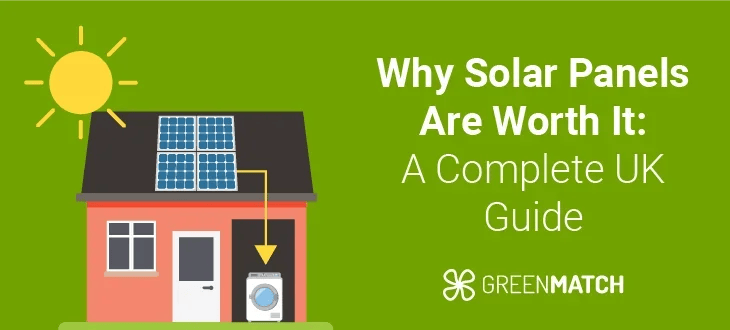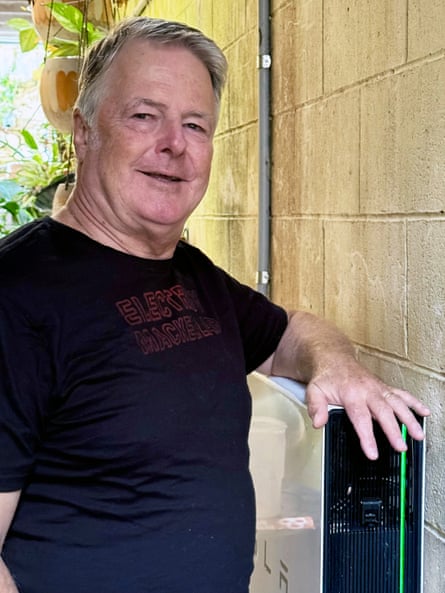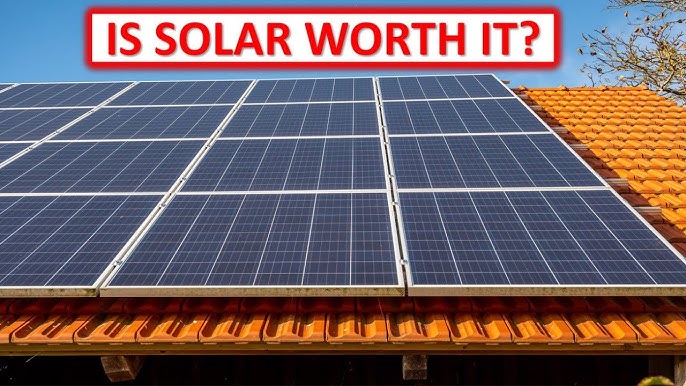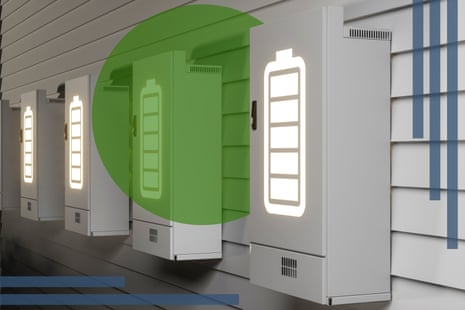Imagine slashing your energy bills while also doing your bit for the planet. Sounds appealing, right?
If you’re considering solar panels for your UK home, you might be wondering if they’re still a good investment. With the unpredictable British weather, changes in government incentives, and the initial cost, it’s easy to feel overwhelmed. But don’t worry, you’re not alone in this.
Many homeowners are in the same boat, questioning whether solar panels are worth the commitment. We’ll break down the current state of solar energy in the UK and help you decide if it’s the right time for you to go green. Stay with us as we explore the real benefits and potential pitfalls, so you can make an informed decision that suits your needs and your wallet.
Current State Of Solar Energy In The Uk
The solar energy landscape in the UK has evolved significantly over the years. As technology improves, solar panels become more efficient and affordable. More households consider solar energy as a viable option. The UK government supports green initiatives, encouraging solar adoption. This has led to increased installations across the country.
Current Solar Energy Statistics
Solar energy contributes significantly to the UK’s renewable energy mix. Solar panels generated around 4% of the UK’s electricity in recent years. Over a million homes have installed solar systems. The demand for solar energy continues to grow. This reflects a positive trend towards sustainable living.
Government Support And Incentives
The UK government offers various incentives for solar energy adoption. These include the Smart Export Guarantee (SEG). It allows homeowners to sell excess energy back to the grid. Grants and subsidies are available for solar panel installations. This reduces the financial burden on consumers.
Modern solar panels are more efficient than older models. Innovations in technology increase energy output. Panels are designed to work in low-light conditions. This makes them suitable for the UK’s climate. Long-lasting and durable materials ensure longevity.
Environmental Impact
Solar panels reduce reliance on fossil fuels. They lower carbon emissions. Utilizing solar energy contributes to a cleaner environment. The shift towards solar power helps combat climate change. It supports global sustainability efforts.
Cost-effectiveness
Solar panels offer long-term savings on energy bills. Initial costs may be high, but payback periods are shorter. Reduced energy expenses provide financial relief. Solar energy proves to be a smart investment. It adds value to properties.
Benefits Of Solar Panels
Solar panels have become increasingly popular in the UK. They offer numerous benefits that make them a wise investment. As more people seek sustainable energy solutions, understanding these benefits becomes essential.
Environmental Impact
Solar panels reduce carbon emissions. They generate clean energy from the sun. This helps decrease reliance on fossil fuels. By using solar energy, you contribute to a healthier planet. It reduces pollution and promotes sustainability.
Energy Independence
Solar panels provide energy independence. You produce your own electricity. This reduces reliance on the national grid. You gain control over your energy supply. Power outages become less of a concern. Enjoy consistent energy availability.
Cost Savings
Solar panels can lower electricity bills. Generating your own power reduces monthly costs. Government incentives may further increase savings. Over time, solar panels pay for themselves. They add value to your property. Consider this long-term investment for financial benefits.
Financial Incentives And Schemes
Solar panels can be a smart investment in the UK. Financial incentives and schemes make them more attractive. These programs can reduce costs and boost savings. Understand these options to maximize benefits from solar energy.
Government Subsidies
The UK government offers subsidies for solar panel installations. These subsidies lower initial costs. They help homeowners afford solar technology. The government’s support encourages green energy adoption. It’s a win for both the environment and your wallet.
Feed-in Tariffs
Feed-in tariffs provide payments for solar energy production. Homeowners receive money for generating electricity. This scheme increases savings on energy bills. It turns solar panels into a profitable venture. Feed-in tariffs make solar energy financially appealing.
Green Home Grants
Green Home Grants assist with energy-efficient upgrades. They cover part of the solar installation costs. Grants promote cleaner energy choices. They ease the financial burden on homeowners. Green Home Grants are valuable for solar panel buyers.

Credit: www.greenmatch.co.uk
Technological Advancements
As the UK moves towards a sustainable future, solar panel technology continues to evolve. This evolution brings significant benefits for homeowners considering solar energy. Technological advancements play a pivotal role in enhancing the value and efficiency of solar panels. These improvements make solar panels a compelling choice for sustainable energy.
Efficiency Improvements
Modern solar panels offer higher energy conversion rates. Advanced materials and designs boost power generation. Panels now capture more sunlight even in cloudy weather. This means more energy for your home throughout the year.
Battery Storage Solutions
Battery technology has improved remarkably. New solutions store energy efficiently for later use. Homeowners can use stored power during night or overcast days. This reduces reliance on the grid and saves money.
Smart Energy Management
Smart systems optimize energy usage. They manage power flow between solar panels, storage, and appliances. These systems maximize energy efficiency and reduce waste. Users can track and control energy through mobile apps. This ensures optimal energy use at all times.
Cost Considerations
Evaluating cost is crucial in deciding on solar panels in the UK. Installation expenses can be high, but long-term savings might outweigh initial investment. Factor in government incentives and energy bill reductions to determine overall value.
Considering solar panels for your UK home? The decision largely hinges on cost considerations. Understanding the financial aspects can help you make a well-informed choice. Let’s dive into the key cost factors: installation, maintenance, and return on investment.Installation Costs
Installation costs are your first major financial hurdle. In the UK, these can vary widely based on system size and complexity. A standard 4kW system might set you back between £4,000 to £6,000. But why such a range? Factors like roof type, regional labor costs, and panel quality play a role. It’s wise to gather multiple quotes to find the best deal. Remember, some companies offer financing options to spread the upfront cost. Could this make solar panels more accessible for your budget?Maintenance Expenses
Once installed, solar panels require minimal maintenance. This is one of their greatest financial advantages. Cleaning panels once or twice a year can keep them efficient. You can do this yourself or hire a professional service. Occasional check-ups ensure your system operates smoothly. These might cost around £100 annually. Does this seem like a manageable expense for long-term savings?Return On Investment
Solar panels can offer significant returns over time. Through energy savings and potential government incentives, you could recoup your initial investment in 8 to 12 years. Consider this: A typical UK household can save up to £300 annually on electricity bills. Over 25 years, this totals a substantial amount. Additionally, homes with solar panels often see increased property value. Would an eco-friendly upgrade make your home more appealing to buyers? When evaluating solar panels, weigh these cost considerations carefully. Could the long-term benefits outweigh the initial investment for you?Challenges And Limitations
Solar panels offer clean energy but face challenges and limitations in the UK. These issues affect their efficiency and appeal. Understanding these aspects helps in making informed decisions.
Weather Dependence
The UK’s cloudy weather impacts solar energy production. Solar panels need sunlight to generate electricity. Overcast skies can reduce their efficiency. This means less power output during gloomy days. Regions with frequent rain face bigger challenges. Sunny days are ideal for maximum energy harvest.
Space Requirements
Solar panels need space for installation. Large roofs are often necessary. Not all homes have suitable rooftops. Some properties lack adequate outdoor space. Apartments and smaller houses may struggle. Finding enough space can be a hurdle for many homeowners.
Initial Investment
Solar panel installation requires a significant upfront cost. Many people find this investment daunting. Costs include panels and installation fees. Financial incentives exist but may not cover all expenses. This initial expense can deter potential buyers. Long-term savings are possible but need time.
Future Trends In Solar Energy
Solar energy is evolving rapidly, impacting the UK energy landscape. As technology advances, solar panels offer exciting possibilities. Understanding future trends helps consumers make informed decisions.
Innovation In Solar Technology
Solar technology is improving at a fast pace. Panels today are more efficient than ever. Innovations like bifacial panels capture sunlight from both sides. This boosts energy production significantly. Thin-film panels are gaining popularity. They’re lightweight and flexible, ideal for varied installations. Transparent solar panels are emerging. These can integrate into windows and facades. Such innovations widen their application.
Policy Changes
Government policies influence solar energy growth. The UK prioritizes renewable energy, including solar. New policies aim to reduce carbon emissions. Incentives for solar panel installation are being introduced. These make solar energy accessible to more households. Future policies may further support solar energy. Consumers should stay informed of regulatory changes.
Market Growth Projections
The solar energy market is expanding. Analysts predict steady growth in the UK. Demand for renewable energy drives this trend. Businesses and homeowners are investing in solar panels. The market offers more options than before. Competition among providers benefits consumers. Prices are expected to decrease, enhancing affordability. Solar energy is becoming more mainstream.

Credit: www.theguardian.com
Case Studies And Real-life Examples
Many UK residents wonder if solar panels are still a good investment. Case studies and real-life examples can provide clarity. They offer insights into financial savings, energy efficiency, and environmental impact.
The Smith Family: Reducing Energy Bills
The Smith family installed solar panels in 2020. Their energy bills decreased by 40% in the first year. They also received benefits from the Smart Export Guarantee. This scheme pays homeowners for excess energy sent to the grid. The Smiths now enjoy significant savings each month.
The Green School Initiative
A school in Manchester embraced solar energy in 2019. Their goal was to cut operational costs and teach students about renewable energy. Solar panels now provide 50% of the school’s electricity. The school saves money and educates future generations on sustainability.
Community Solar Project In Bristol
A community in Bristol started a solar project in 2018. Residents pooled resources to install panels on shared rooftops. Energy savings are shared among participants. This model promotes cooperation and reduces individual costs. It highlights the power of community-driven initiatives.
Mrs. Brown’s Eco-friendly Retirement
Mrs. Brown decided to invest in solar panels after retiring. She aimed to lower her carbon footprint. Her panels cover 60% of her energy needs. Mrs. Brown enjoys reduced bills and a sense of contributing to environmental health.
Urban Challenges: Mr. Patel’s Experience
Mr. Patel faced challenges installing solar panels in an urban area. Limited roof space and shading were concerns. He opted for high-efficiency panels. Now, he generates enough energy to cover 30% of his usage. His experience shows that urban dwellers can also benefit from solar solutions.

Credit: www.youtube.com
Frequently Asked Questions
Are Solar Panels Still A Good Investment In The Uk?
Yes, solar panels remain a good investment in the UK. They offer energy savings and reduce electricity bills. With government incentives and reduced solar panel costs, the return on investment is attractive. Additionally, solar energy contributes to a greener environment, aligning with the UK’s sustainability goals.
How Long Do Solar Panels Last In The Uk?
Solar panels in the UK generally last 25 to 30 years. Their efficiency may decrease slightly over time. Regular maintenance ensures optimal performance. Most manufacturers offer warranties of 20 to 25 years, providing peace of mind. Investing in solar panels can provide long-term energy savings.
What Are The Benefits Of Solar Panels In The Uk?
Solar panels offer several benefits in the UK. They reduce electricity bills and increase property value. They provide energy independence and are environmentally friendly. Solar panels also have low maintenance costs. Government incentives make them an even more attractive investment.
Switching to solar supports sustainable energy goals.
How Much Do Solar Panels Cost In The Uk?
The cost of solar panels in the UK varies by system size and provider. On average, a typical residential system costs between £4,000 and £6,000. Prices have decreased significantly in recent years. Government incentives and savings on electricity bills can offset initial costs, making solar panels a worthwhile investment.
Conclusion
Solar panels in the UK still offer great benefits. They reduce electricity bills. They help the environment by cutting carbon emissions. Government incentives support this green choice. Solar technology is improving and becoming more affordable. Installing solar panels boosts home value too.
It’s a smart investment in the long run. Consider your roof’s exposure to sunlight. Think about your budget and energy needs. Weigh the initial cost against long-term savings. Many homeowners find solar panels a wise choice. They provide clean energy and financial savings.
Make a decision that suits your lifestyle and values.




